#dialect
Explore tagged Tumblr posts
Text
how to convey arabic language in a specific dialect is being spoken without lengthy descriptions of how words/specific letters are pronounced?
Anonymous asks:
I believe my question revolves around linguistics, but please correct me if there’s something I didn’t take into account. I’m an Egyptian girl who speaks Arabic (the Egyptian dialect specifically), and I am currently writing an urban fantasy set in modern day Egypt. Naturally, the characters would be speaking Egyptian arabic (i even have a scene where my character converses with a tourist and struggles to speak to them ‘in english’) But as the story is written in english, I found this is really hard to convey, especially with the entirely different alphabet, and the words that simply cannot be transcribed (sometimes in definition, and sometimes in letters that don’t have an equivalent). What would be a good way to send the message that these characters are by no means speaking English (unless stated) without having to hold the reader's hand through lengthy descriptions of how a word is pronounced at every corner?
Hi Anon! This is a tough spot. I’m no expert, just a mod and fellow writer trying to support your fantastic ask. Any bilingual readers, especially other Arabic speakers, feel free to chime in.
1- Disclose they’re speaking Arabic, even though you’re writing in English:
Example A: “Hey, Noor! Wait up,” he said in Arabic.
Example B: “Habibti, I haven’t seen you in a while,” she reminded me. It was true - I had missed the lilt of her Darija-Moroccan dialect-so different from the Mesri, the Egyptian twang, that rolled off my tongue.
2- Consider using Arabic semantic structure or phrases and idioms used mostly in Arabic.
Example A: She reddened with embarrassment. // They whitened at the sight of it. ((English would probably say she ‘turned red’ rather than reddened, or ‘paled’ rather than whitened. Since Arabic has this natural and fun ability to let color be a verb, which English can but doesn't have naturally - make use of it! It will read differently in English because it’s an Arabic construct. Use other examples like this that you’d know better than me.))
Example B: Consider using “May the Gods smite her house!,” instead of the classic English ‘Fuck You.’ Or use “On my eyes” rather than ‘min ayooni’ or its English translation of ‘of course.’ Since Arabic language is beautifully expressive, you could lean into that when you can rather than using common English alternatives.
Example C: Consider interspersing Arabic transliterations of common words/phrases like; habibti/habibi; yani; mashallah casually through the story.
3- When speaking with English speakers, consider using informal text/chat speak (Arabizi?) to communicate the Arabic, since it’s already transliterated to the Roman alphabet. [disclaimer - I am atrocious at this, and will be surprised if anyone can read it… but for science!]:
Example A: Instead of (انت طالب بالجامعة) or “are you a student?” it becomes;
“Ente 6albeh bel jam3a?” I asked, staring at the textbook in his arms.
He looked at me confused. “I don't understand,” he said. “I can’t speak Arabic.”
“Wain 3m tedrus? Where do you… y3ni… where do you study?” I tried again in slow, awkward English.
These examples may or may not work for you. It’s important to remember that there’s no single "right" way to do this, but it’s mostly about finding a balance that reads well, and feels good to you. Subtle cues like sentence structure, idioms, the occasional untranslated word, and natural context can help to show the language shift. Good luck and happy writing!
~ Melanie 🌻
P.S. Mod Meir suggests checking out the book When the Angels Left the Old Country by Sacha Lamb, which handles this issue well. There's a lot of "He said in English" or "He repeated it in Yiddish for the old woman's benefit" or "It took him a moment to realize he had spoken in English" (( Thanks Sacha! @kuttithvangu ))
690 notes
·
View notes
Text
Just when you think you understand a language, slangs and idioms come at you from behind. In English, my first language, there are phrases that can confuse me in a busy conversation.
"We're cooking!" and "We're cooked" have opposite meanings.
"That's cool" and "That's hot" mean similar things.
"Fired up" and "Got fired" have wildly different meanings, and so do "Knocked out" and "Knocked up."
And if you move slightly to the left in any country/continent, they use different terms and idioms! How does one keep track?! Especially when new to a language?
425 notes
·
View notes
Text
991 notes
·
View notes
Text
Rare Language Learning: Polari
If you have ever used the words:
- Naff
- Butch
- Camp
You have unknowingly been speaking the sociolect known as Polari, the language of queer people primarily used in the 30s to the 70s. Polari is now an endangered language, as labelled by the University of Cambridge
Something of note: Many resources out there imply (or state) that Polari was a language invented and used solely by white cis gay men, which is decidedly untrue. Many words of Polari come from drag culture, lesbians, and the Romani people and their language. The use of ‘the language of British gay men’ may be a more palatable title to the general public, but it is not to me. I did my best to curate a variety of resources, but unfortunately much of queer history has been lost many more decades than I’ve been alive, if you have any other resources for studying Polari I would love to read them, message me or leave a link in the replies.
Articles
Learn Polari, the Secret Language of the Gays ⚢ Out Magazine
Polari: The code language gay men used to survive ⚢ BBC
Polari and the Hidden History of Gay Seafarers ⚢ National Museums Liverpool
The Story of Polari, Britain’s Secret Gay Language ⚢ Fabulosa!
Polari People ⚢ Fabulosa!
Polari: a language born from prejudice ⚢ Englishpanish
The secretive gay language that gave LGBTQ people a voice ⚢ GAYTIMES
A brief history of Polari: the curious after-life of the dead language for gay men ⚢ The Conversation
Study Material
The Polari Bible ⚢ Internet Archive
Fantabulosa: A Dictionary of Polari and Gay Slang ⚢ Internet Archive
Sociolinguistics / Polari ⚢ StudySmarter
FlashCards ⚢ Quizlet
New Polari Translator ⚢ LingoJam
Polari: A sociohistorical study of the life and decline of a secret language. ⚢ Dissertation, University of Manchester
Polari: a language born from prejudice ⚢ Englishpanish
Simon Bowkett: a short blog in Polari for LGBT+ History Month ⚢ Civil Service LGBT+ Network
#academia#studyblr#university studyblr#uni#university#student#linguistics#language study#language learning#langblr#languages#endangered languages#queer history#queer history month#lgbtq community#lgbtq history#lgbtq history month#lgbt#lgbt history month#queer academia#queer community#linguistic#Polari#Polari language#dialect#sociolect#pride#uk history#English history#university student
795 notes
·
View notes
Text
Inarizaki's Kansai Dialect
Japanese Dialects are split into Eastern and Western, with the Standard Japanese dialect being Eastern (Kanto region) and Kansai region dialect being Western (eg. cities of Osaka and Kyoto, and of course Hyogo prefecture- where Inarizaki is from). The pitch, tone, and stressing of the sounds is different from standard Tokyo Japanese so you should be able to hear the difference in how the Inarizaki members speak even if you don't know any Japanese.
just in case yall didn't know, Suna is the only member on the team that does not use Kansai dialect as he was scouted from Aichi prefecture, so he basically just speaks in the standard dialect
Some linguistics of the dialect that may or may not be heard in the show:
"ya" ending vs the standard "da" ending.
Kore kirai ya. vs Kore kirai da. (I hate this.)
the use of the "h" sound instead of "s"
Han vs standard san (honorific suffix, not really used anymore)
Negation suffix "-hen" instead of the standard "-nai".
Taichou kanri dekitehen koto, homen na. vs Taichou kanri dekitenai koto, homen na. (Don't compliment him when he's obviously not taking care of himself.)
verb "oru" vs the standard "iru".
Dareka ga mitoru yo, Shin-chan. vs Dareka ga miteiru yo, Shin-chan. (Someone's always watching, Shin-chan.)
verb "temau" vs standard "teshimau"
Naitemau yaro! vs Naiteshimau darou! (You're gonna make me cry!)
Negation "suru" verb becomes "sen" instead of "shinai".
Ki ni sen dee. vs Ki ni shinai yo. (Don't worry about it.)
Some words that are different in Kansai dialect:
Honto becomes Honma (really)
Sodane becomes Seyade (thats right)
Nande becomes Nandeyanen (why)
Totemo becomes Meccha (very)
ii becomes ee (good)
"aho" means stupid in Japanese, but apparently in the Kansai dialect calling someone an "aho" is actually a compliment?! (even though it has the same definition)
Overall, I could watch the Karasuno vs Inarizaki episodes a hundred times just to listen to Inarizaki's dialect and how different it sounds to the rest of the characters in the entire show.
Although Karasuno speaks in the standard dialect (which isn't very strange since Miyagi is a suburb close enough to the Kanto region), theres a few lines here and there where one of them says something using the Tohoku dialect (the dialect that would be used often in the rest of Tohoku, such as Aomori).
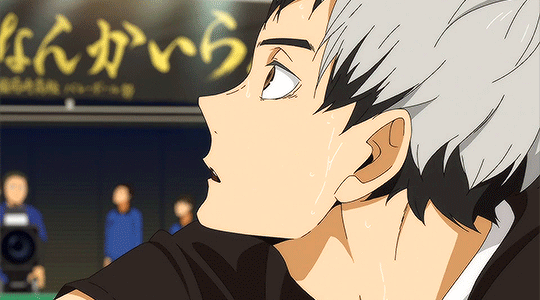
(I especially like Kita's voice, thank you Nojima Kenji.)
#haikyuu#inarizaki#japanese linguistics#japaneselanguage#japanese#kansai#kita shinsuke#miya atsumu#miya osamu#miya twins#suna rintarou#aran ojiro#ojiro aran#akagi michinari#anime#anime and manga#linguistics#dialect#kenji nojima#japanese language#karasuno#tokyo
626 notes
·
View notes
Text
Have you played DIALECT : A Game About Language And How It Dies ?
By Hakan Seyalioglu and Kathryn Hymes,
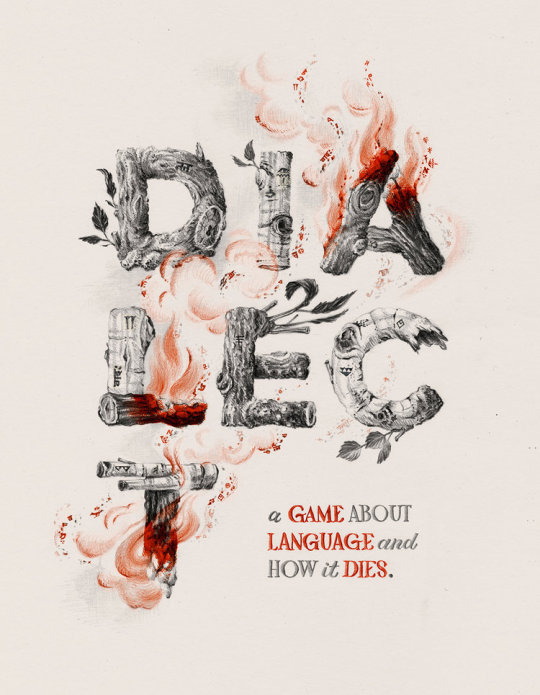
A game about a small community isolated from the rest that slowly builds its own version of their language until it fades away or is destroyed. Beautiful and gut wrenching.
130 notes
·
View notes
Text
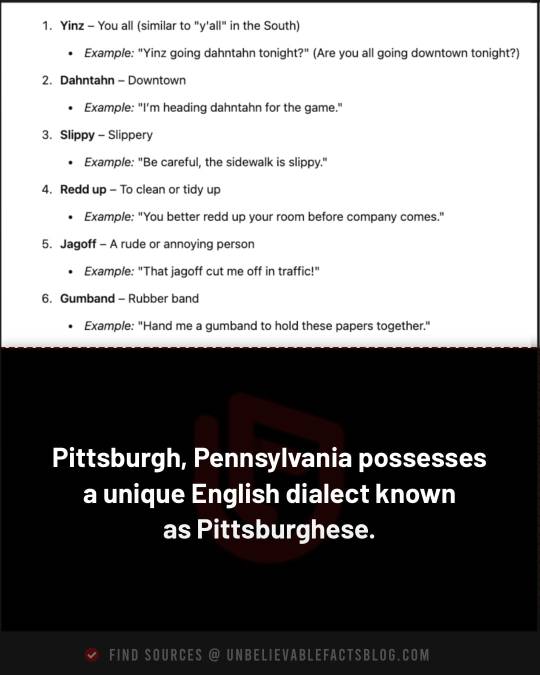
Pittsburgh, Pennsylvania possesses a unique English dialect known as Pittsburghese.
66 notes
·
View notes
Text
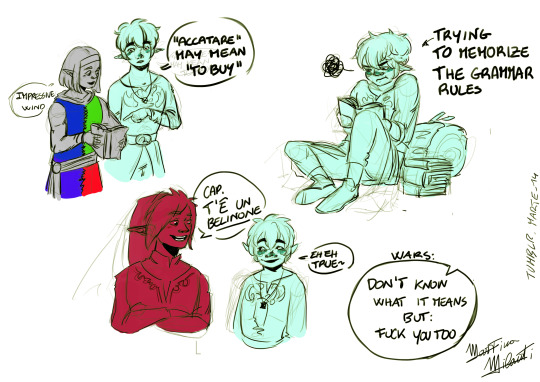
Doodle made based on my fic Labrynian.
Context: Legend is bilingual and sometimes he speaks in Labrynian, Wind picks up on this and want to know more, so he learns the language as well.
Labrynian is based on a dialect from Italy, Genoese
What Legend says to Wars: "Cap. You are a dickhead/idiot"
#fan art#fanfic#fanfiction#legend of zelda fanart#linked universe#lu legend#lu wind#language#dialect#lu fanart#my art
203 notes
·
View notes
Text
Bonus: tell me in the tags what region of the world/usa you are from
Example words: pink, sing, think, bring
46 notes
·
View notes
Note
Praat jij (soms) Nederlands met een accent of dialect? Hoeft dus niet per se 24/7, maar bijvoorbeeld ook alleen bij je familie. Zo ja, welke? (Zie deze wikipediapagina voor de indeling van de dialectgroepen)
Ja, Zuidwestelijke groep (Zeeuws/West-Vlaams)
Ja, Noordwestelijke groep (Hollands)
Ja, Noordoostelijke groep (Nedersaksisch/plat)
Ja, Noordelijk-centrale groep (Utrechts-Alblasserwaards)
Ja, Zuidelijk-centrale groep (Zuid-Gelders/Brabants/Oost-Vlaams)
Ja, Zuidoostelijke groep (Limburgs)
Ja, Surinaams- of Antilliaans-Nederlands
Ja, een Turks of Marokkaans accent
Ja, een ander accent (bijv. omdat Nederlands niet mijn moedertaal is)
Nee, ik praat Fries
Nee, ik spreek altijd ABN
Ik ben kaal / praat überhaupt nooit Nederlands / heb meerdere accenten
45 notes
·
View notes
Text
youtube
My latest essay is on "Dialect," by Kathryn Hymes and Hakan Seyalıoğlu! I compare the game's inevitable language death to Arkady Martine's "A Memory Called Empire," and discuss how both texts are interested in the ways hegemonic culture consumes everything, even without violence.
Transcript here.
118 notes
·
View notes
Text
i know we all like to have a little haha at gambit's expense, but i really do appreciate how thoroughly cajun he was allowed to be accent-wise. dialects and even foreign accents are watered down in hollywood for the sake of being understandable to US audiences – à la foreign characters speaking english to each other so they don't need subtitles – but remy gets to really lean into it! some of those quick, murmury sections that you and wade didn't understand? he's speaking fucking french! that's great! and yes, wade is making semi-meta jokes at his expense, but a baby step is a step tbh
#remy lebeau#gambit#deadpool and wolverine#deadpool 3#deadpool & wolverine#xmen#x men#dialect#accents#language#linguistics#mine
68 notes
·
View notes
Text
Have you played Dialect before? Isn’t it awesome? How does a game about language (and how it dies) bring out such intense feelings?
I think it’s the “how it dies” part.
I wrote a little thing about it over at the Everlasting, Neverending Game Night:
135 notes
·
View notes
Text
Bless your heart. No - really
It seems to be understood, at least through the southern US, that "bless his/her/your heart" is a thinly veiled insult. However, when I was growing up, technically southern, my mother always used it more literally. F'rinstance, if I took her flowers she might say "Oh, bless your heart" and would 100% mean it. Based on that example, I use it the same way. I've wondered a little about that, since I realized how other people mean it.
Anyhow. I posted a scan of a letter from my great grandmother (daughter of Irish immigrants on both sides) to my grandmother dated 1944. At the end of that she refers to a Valentine's card that my very young mother had sent to her, and added "Bless her heart." Clearly meaning it sincerely. It made me wonder if the southern Bless-your-heart met up with the Irish diaspora tendency to use the term 'Bless' frequently and literally and created a little coal-mining-town pocket of folks who say it when they're truly delighted with someone or something.
Just pondering. Anyone else out there use B-y-h in a positive, loving way? Is Bless-your-heart George's Creek* an outlier that should not be counted?
'* George's Creek follows a major Appalachian coal seam and has lots of tiny, defunct mining towns.
100 notes
·
View notes
Text
Haikyuu Miyagi Dialect
So I mentioned in my Inarizaki's Dialect post that Karasuno (and the other Miyagi schools) would actually speak in the Tohoku dialect (technically). They don't really speak in the dialect (they speak the standard dialect since they live in a suburb of Sendai, which is big enough and close enough to the Kanto region (tokyo)), but theres a few lines in which some characters do use a little bit of dialect. So here are some examples that I can think of:
disclaimer - im too lazy to properly rewatch the show so im going off memory, therefore i cant guarantee 1000000% accuracy
Sugawara, Terushima, Hinata, Oikawa, Asahi, and Iwaizumi seem to have the most noticeable Tohoku dialects from what I remember hearing??
Suga (and Terushima?) especially ends his sentences with "-yarube", "-dabe", "-be" quite often which is very miyagi of him, he definitely has the strongest dialect out of all of them.
A specific example from Asahi is him saying 俺は昨日残るって言ったべよ! (ore wa kino nokoru tte ittabeyo).
I also remember Iwaizumi saying バレーはコートに6人だべや! (bare wa koto ni roku nin dabe ya).
Hinata says 昼飯食うべ (hirumeshi kuu be) along with other tohoku-like sentences
and I think Daichi once says 一回聞いとくべ (ikkai kii toku be)
I also remember reading somewhere that "boke" (often used by Kageyama and Iwaizumi) is reminiscent of the Tohoku dialect but im honestly not too sure....?
OoOOOooOO i just remembered a specific dialectal word that Oikawa once uses towards Kageyama is おがったね (ogattane). he uses the verb おがる (ogaru) which means "to grow up" in tohoku dialect.
Ukai once uses いずそうな (izusouna) which is also part of miyagi dialect
basically, you can assume that sentences ending with "-be" in haikyuu are miyagi dialect
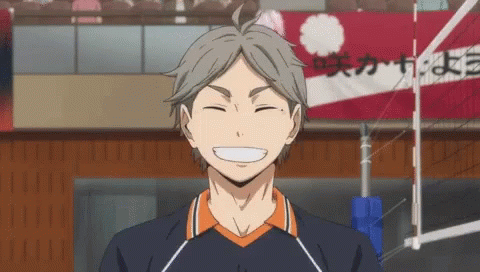
(this is a completely different anime but in jujutsu kaisen Itadori actually uses some tohoku dialect closer to the beginning of the story which I thought was also interesting)
#japanese linguistics#japaneselanguage#linguistics#anime#anime and manga#haikyuu#sugawara koushi#asahi azumane#sawamura daichi#hinata shoyo#kageyama tobio#iwaizumi hajime#oikawa tooru#ukai keishin#terushima yuuji#karasuno#aoba johsai#dateko#date tech#shiratorizawa#johzenji#dialect#language learning#jjk#jujutsu kaisen#yuji itadori
185 notes
·
View notes